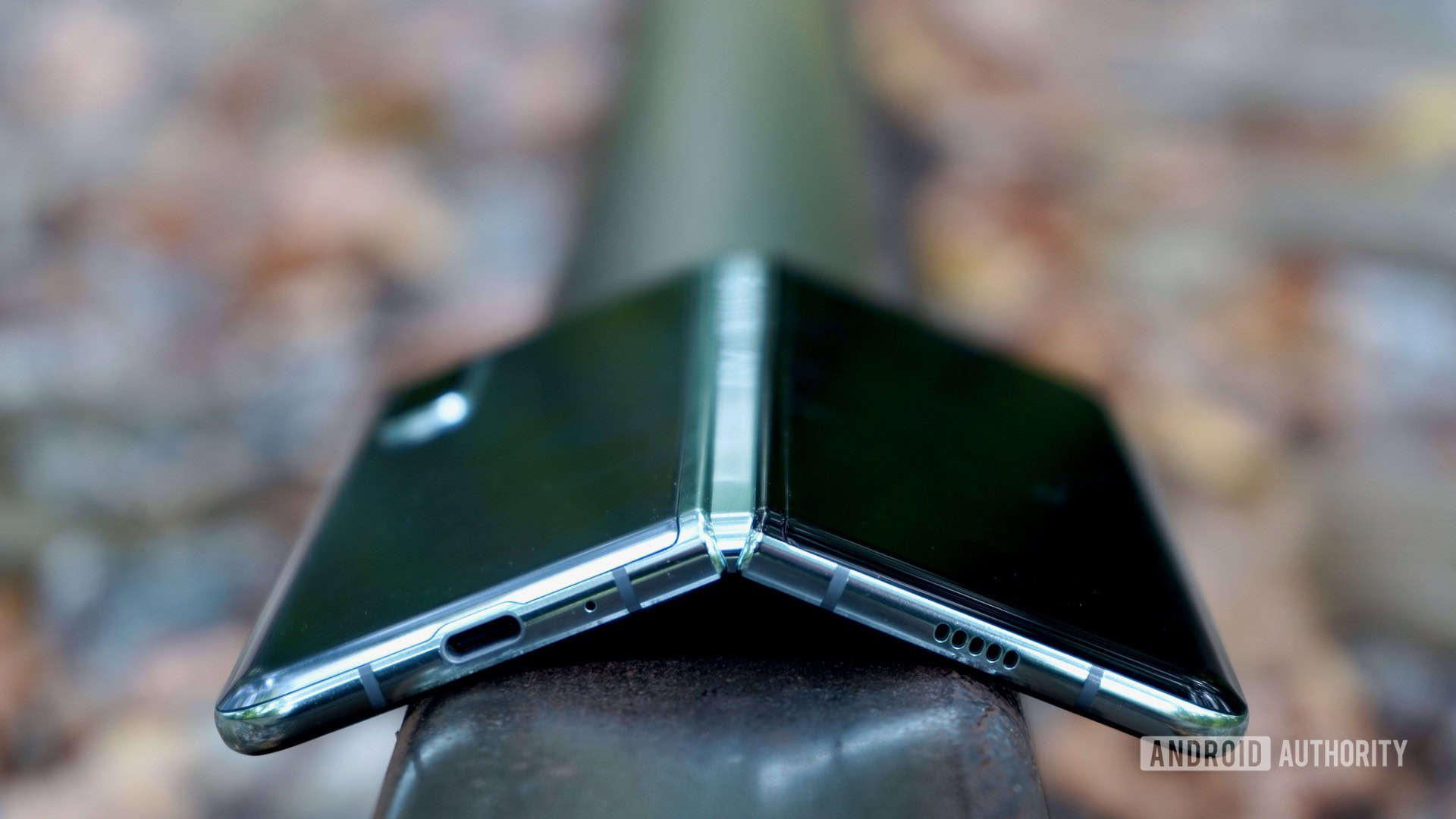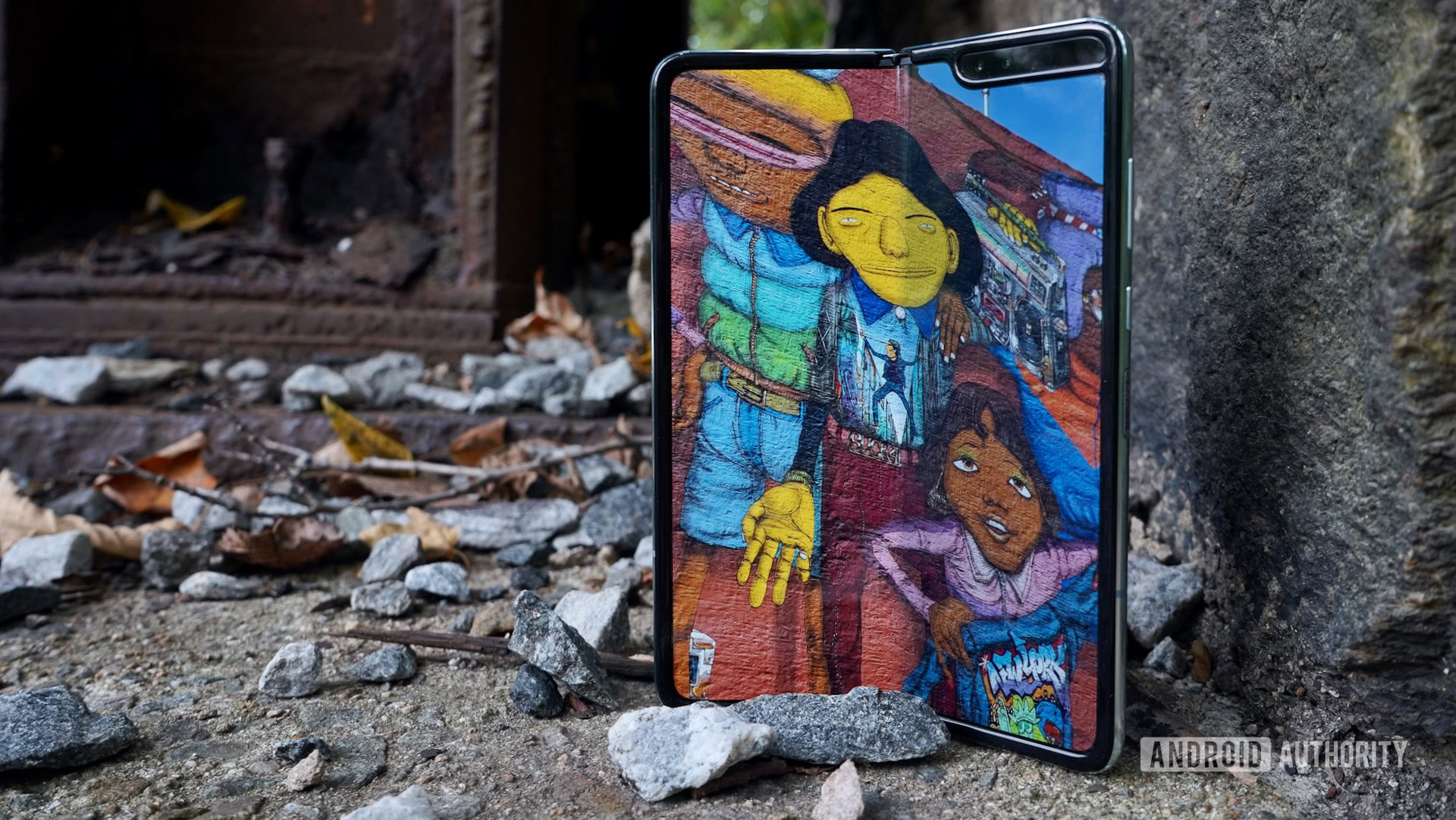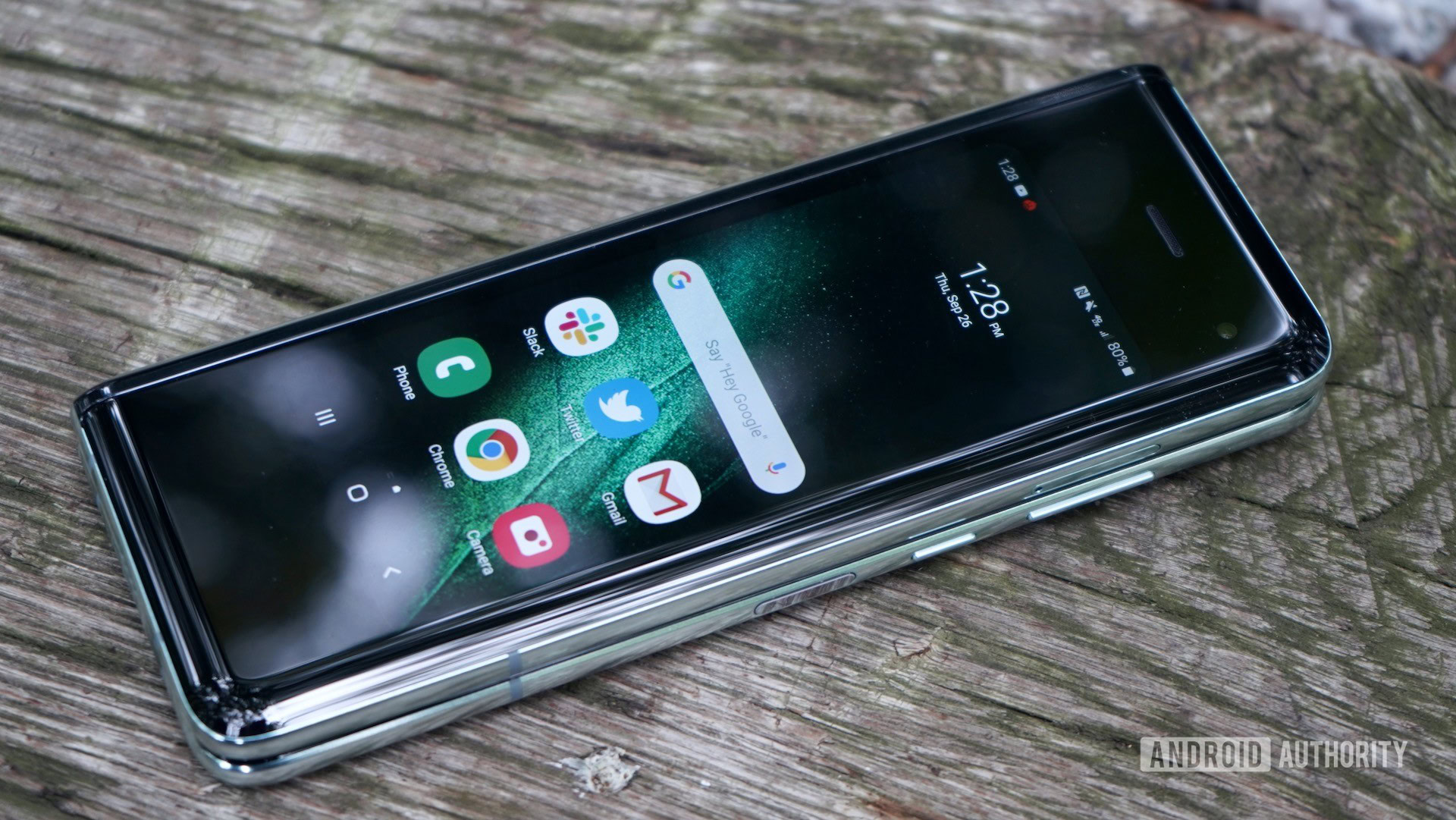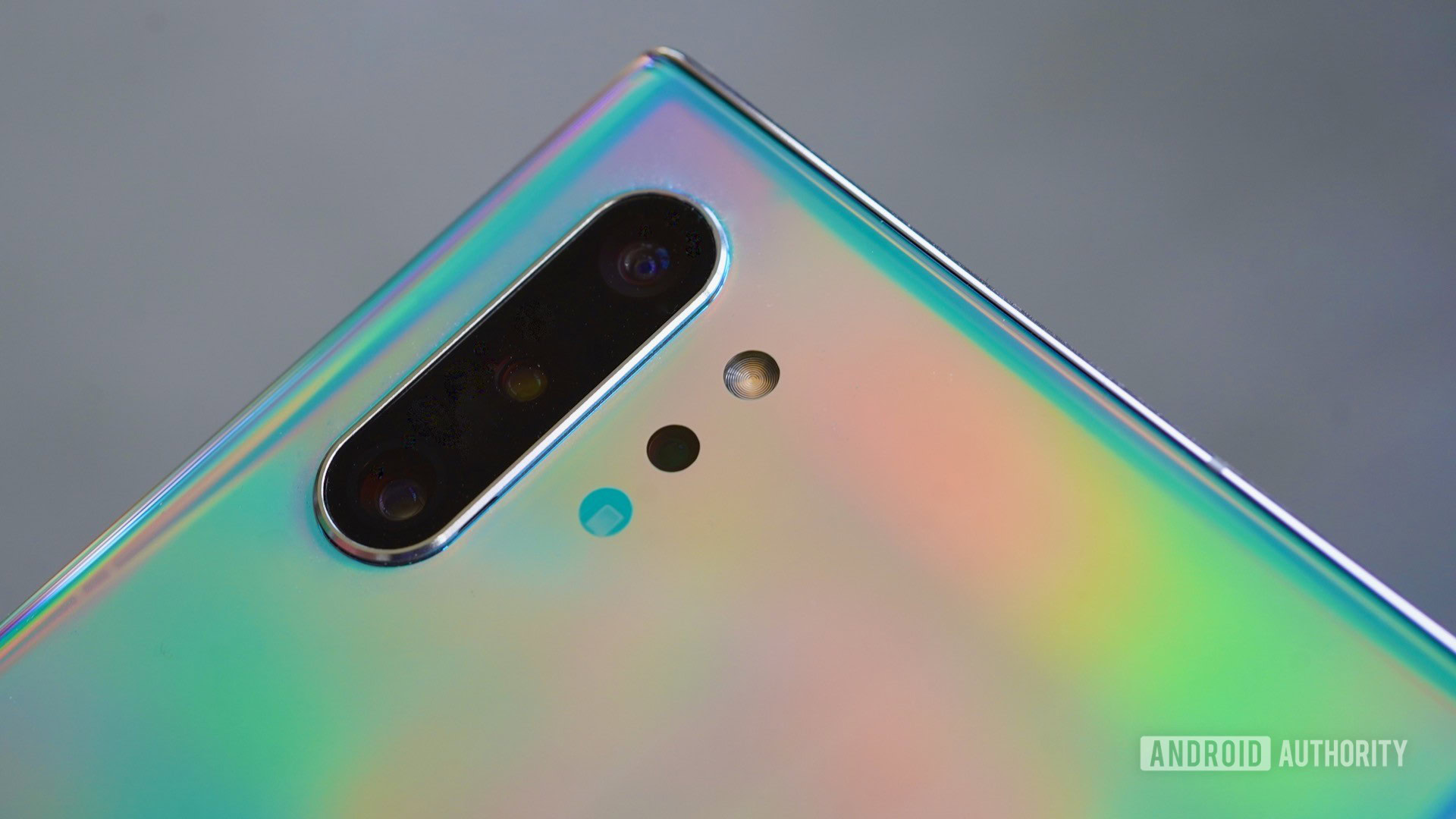Affiliate links on Android Authority may earn us a commission. Learn more.
Ongoing Samsung Galaxy Fold review: Day 3 - Core capabilities tested

Now we’re getting to the nitty-gritty. In this installment of our ongoing Samsung Galaxy Fold review, we’ll tackle some of the big question marks. We already know how the hardware design factors into daily use, and how app continuity moves the user interface along. Raw power is another matter altogether. The phone is a spec monster — and well it should be!
Does the processor hold up? What about the battery? Does the Galaxy Fold have a good camera?
Find out in Day 3 of our ongoing Samsung Galaxy Fold review!
Also read: Galaxy Fold review day 1 | Galaxy Fold review day 2
Performance

Samsung opted for the best silicon from Qualcomm, meaning the Snapdragon 855 paired with a whopping 12GB of RAM. This class-leading SoC has eight cores clocked at 2.84GHz (one), 2.41GHz (three), and 1.78GHz (four) to handle high- to low-intensity tasks. An Adreno 640 GPU pushes the polygons, and 512GB of UFS 3.0 storage portends quick interactions with apps and content stored on the phone.
Before we discuss the numbers, let’s talk about how the phone holds up as far as the experience is concerned. The Galaxy Fold’s form factor would appear to play a role in its performance. With two screens and the software needed to transition from one screen to the other, the Fold can feel a little inconsistent at times. We’re not talking big problems, but the phone lagged here and there, froze for a few seconds, or paused just long enough for you to notice. In other words, it could be a hair better.
The phone lagged here and there or paused just long enough for you to notice.
For now, I’ll chalk up the blips to the dual-screen design and extended aspect ratio of the main display. Whether or not these are truly where the problem rests, we cannot be sure.
The benchmark results matched those of the Galaxy Note 10 Plus almost exactly. It nabbed 362,810 on AnTuTu, 703/2,572 on GeekBench, and 5,656/4,972 on 3DMark, compared to 369,029, 3,434/10,854, and 5,692/4,909, respectively, on the Note 10 Plus. The outlier is GeekBench, where the Fold failed to equal the Note 10 Plus. Hard to say why.
Perhaps what I though most interesting is that the Fold only bested 87% of other devices in the AnTuTu CPU score. Moreover, it was slower in the UX and memory portions of the test. The new OnePlus 7T (Snapdragon 855 Plus), by way of comparison, reached the 99th percentile for nearly every aspect of AnTuTu.
Right now, the experience is more important to me than these numbers, and the experience doesn’t quite match that of Samsung’s own Note 10.
Battery

Next up in our Samsung Galaxy Fold review: battery life. You’d think a device with two screens would suck down juice at an alarming rate. Thankfully, this is not the case with the Galaxy Fold.
The phone’s 4,380mAh battery is actually split in two, with a portion residing in each half of the phone. Like the Note 10 series, the Fold relies on Samsung’s Intelligent Adaptive Power Saving Mode to keep the phone up and running. That means the device pays attention to how you use it over time and makes proactive changes to maintain a charge.
We haven’t completed our full suite of battery tests, but in the few days I’ve been using the phone I’ve had a hard time zeroing it out. On one day, I used the phone continuously from 9 a.m. to 5 p.m. and still had more than 70% in the tank.
The Fold not only supports rapid wireless charging, but it can share power wirelessly with certain accessories.
It charges fairly quickly. Sadly, the included charging brick is just 5V/2A, which doesn’t cut it for a $1,980 phone. I used a 60W Anker charger and the phone filled up faster.
The Fold not only supports rapid wireless charging, but it can share power wirelessly with certain accessories. I placed the Fold in Samsung’s own fast wireless charger and it powered up more rapidly than it did via the included plug. As for charging other devices, Samsung says it can handle the Galaxy Buds true-wireless headphones and the Samsung Galaxy Active 2 smartwatch. I tested the Buds and, yes, it works, albeit slowly.
For now, I’m pleased with the Galaxy Fold’s battery performance. We’ll update this with official ratings once we complete our tests.
Camera

The Galaxy Fold carries over the exact camera setup seen on the Galaxy Note 10. That means a three-camera system with standard, wide-angle, and telephoto lenses. One camera on the front helps with quick selfies, and two cameras above the inner screen allow for standard and wide-angle selfies. Yes, the Galaxy Fold has six cameras.

Usability is a bit of an issue as far as I am concerned. The app is, of course, the same as that of the Note 10 series. You can take selfies and photos with the main cameras when the Fold is closed. The 4.9-inch Cover Display is your viewfinder. It’s super wide, thanks to the 21:9 aspect ratio of the screen — and so are the images.
By default, all the cameras are set to the “full” aspect ratio. In this case, “full” means full screen, not the actual full resolution of the sensor. What’s doubly confusing is that this applies to the outer screen as well. Unless you actively change the aspect ratio from “full” to 4:3 in both the outer and inner viewfinders, you’re going to get oddly cropped photos. You can also set the aspect ratio to 16:9 and 1:1 if you wish.
A quick double-press of the screen lock button launches the camera. The Fold provides full access to all the camera’s features whether it is open or closed. It is a bit harder to navigate the controls on the Cover Display thanks to the smaller size. While it is easier to take pix when the Fold is closed, you have a better view of the subject when shooting with the Fold open. Conversely, shooting with the Fold open feels stupid and is confusing. For example, you need to rotate the Fold sideways — just as you do a regular phone — if you want pictures with a landscape viewpoint rather than portrait.
How are the photos? In a word: good. The daytime shots I took in New York City are fantastic across the board. The color and white balance are accurate, exposure is perfect, and focus is tack sharp. I have absolutely no complaints about the images.
Things change a bit indoors. In some of the shots you’ll see more grain, and the focus isn’t as crisp as I’d like. This was the case no matter which of the three lenses I chose. You can see this in the Penn Station tunnel and Qualcomm lab shots below.
The external selfie camera does an acceptable job. Some shots I took indoors looked decent, though color and dynamic range were a little flat. The inner selfie cameras are more fun, as they include the ability to take super wide-angle selfies. This is great when you need to fit more people in the shot, or when you want to capture more of the scene behind you. Results are on par with the outer camera.
Video options are plenty. You can record at resolutions up to 4K at 60fps, which is all you can ask for at the moment. That’s the rear camera. The front camera can capture 4K at 30fps. The device also includes slow-motion, super slow-mo, and hyperlapse for those who like to time-shift their video. The snippets I recorded looked and sounded good.
More to come
We’ve almost reached the finish line. We’ll wrap up our ongoing Samsung Galaxy Fold review in the days ahead and soon publish a single, full review with all the parts tied together — including our final verdict on the device!